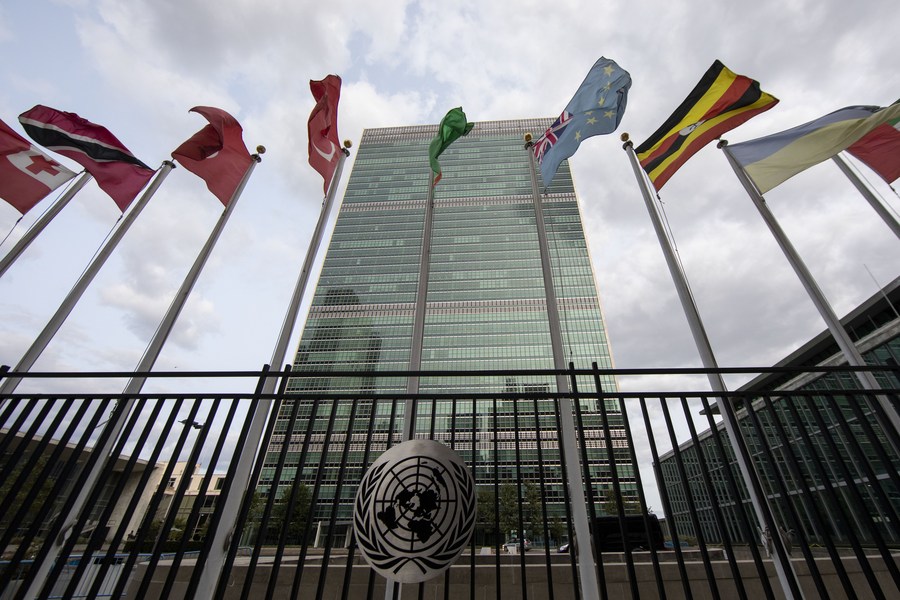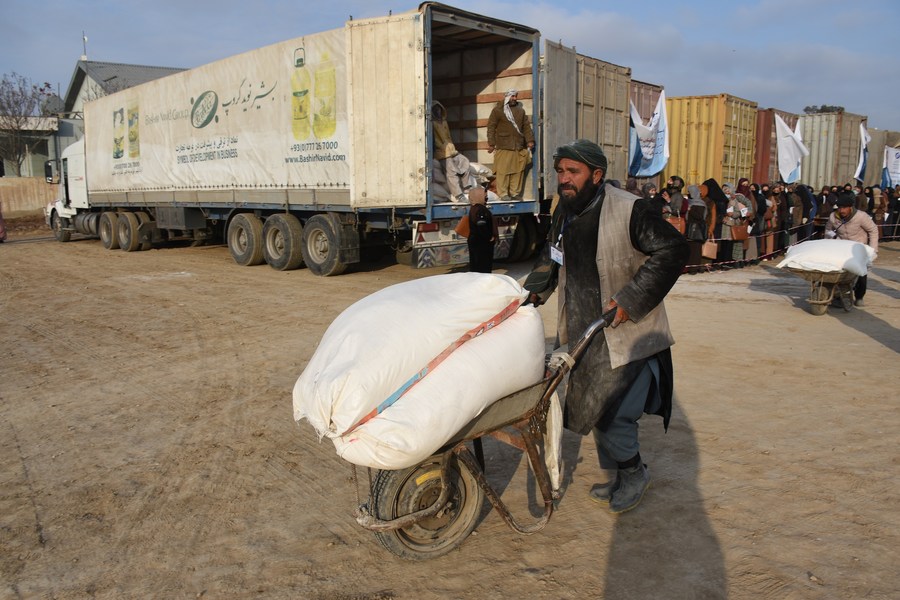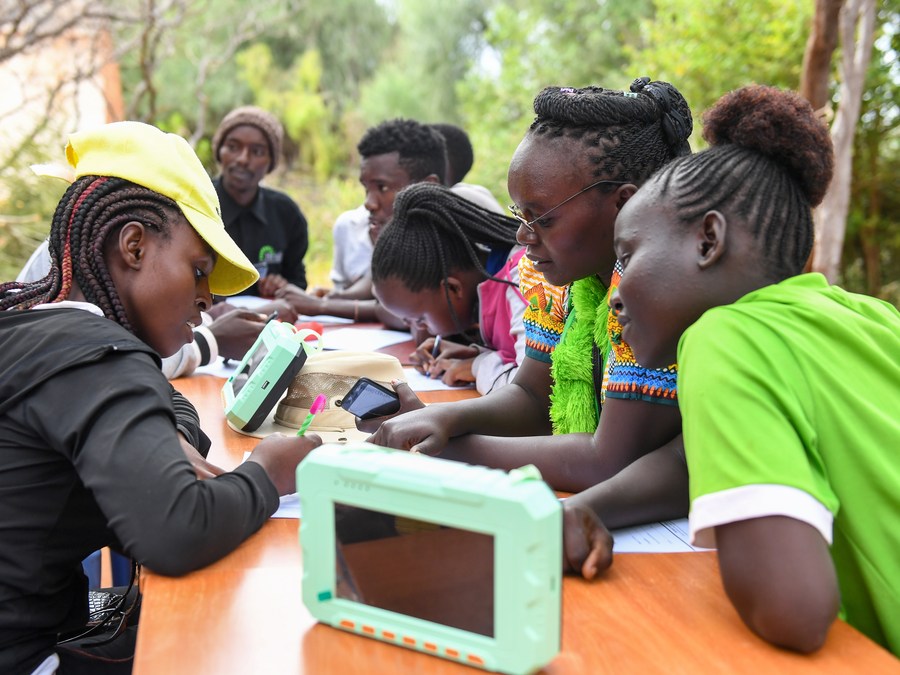
Photo taken on Sept. 14, 2020, shows the outside view of the United Nations headquarters in New York, the United States. (Xinhua/Wang Ying)
Failure to redouble global efforts to achieve the SDGs may fuel greater political instability, upend economies and lead to irreversible damage to the environment, according to a UN report.
UNITED NATIONS, July 10- The world risks big misses across the Sustainable Development Goals (SDGs) unless actions to accelerate implementation are taken, said a UN report released on Monday.
Failure to redouble global efforts to achieve the SDGs may fuel greater political instability, upend economies and lead to irreversible damage to the environment, according to "The Sustainable Development Goals Report 2023: Special Edition."
The SDGs were unanimously adopted by world leaders in September 2015 to serve as the blueprint for global development efforts in the years leading up to 2030. The 17 goals aim to end poverty, fight inequalities and tackle climate change.
Using the latest available data and estimates, the new report provided a comprehensive midpoint assessment of the progress of the SDGs.
The combined impacts of the climate crisis, the conflict in Ukraine, a gloomy global economic outlook and lingering effects of the COVID-19 pandemic have revealed systemic weaknesses and hindered progress towards the SDGs, the report said.

An Afghan teacher carries humanitarian assistance in Mazar-i-Sharif, capital of Balkh province, Afghanistan, Dec. 15, 2021. (Photo by Kawa Basharat/Xinhua)
According to the report, of the approximately 140 targets that can be evaluated, half of them show moderate or severe deviations from the desired trajectory, and more than 30 percent of these targets have experienced no progress or, even worse, regression below the 2015 baseline.
It said that the impacts from the COVID-19 pandemic stalled three decades of steady progress in reducing extreme poverty, with the number of people living in extreme poverty increasing for the first time in a generation.
If present trends persist, by 2030, 575 million people will remain trapped in extreme poverty and an estimated 84 million children and young people will still be out of school, the report said.
It further warned that while lack of progress is universal, it is the world's poorest and most vulnerable who are experiencing the worst effects of these unprecedented global challenges.
Meanwhile, the report pointed to progress in some areas since 2015 which illustrates the potential for further advances.
Among the progress highlighted, the share of global population with access to electricity has increased from 87 percent in 2015 to 91 percent in 2021, with close to 800 million additional people being connected.
The report also illustrated that the number of people using the Internet has grown by 65 percent since 2015, reaching 5.3 billion people of the world's population in 2022.

People register during a launching ceremony of a solar media project in Nthunguni village of Mtito Andei, Kenya on July 1, 2023.(Xinhua/Li Yahui)
Such important development gains demonstrate that a breakthrough to a better future for all is possible through the combination of collective action and strong political will, and the effective use of available technologies, resources and knowledge, said the report.
"We are at a moment of truth and reckoning. But together, we can make this a moment of hope," UN Secretary-General Antonio Guterres wrote in the forward of the report.
"I urge all member states to make 2023 the moment when we jump-start progress on the SDGs, to create a more peaceful and prosperous future for all," he added.











